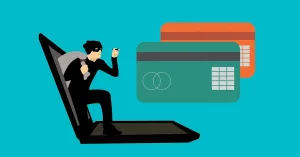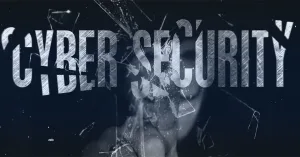Almost 263 million Americans shop online, and that number is growing every day. Everything we need, from new underwear to a new car, can be found and purchased somewhere on the internet. However, given the constant rise of cyber threats, it’s become a necessity that we are aware of potential risks when shopping online, and know how to protect ourselves against them.
You’re more vulnerable than you may think when shopping online, not only to cybersecurity and data threats but also to more common scams such as the theft of credit card information. But since many of the sites we use are widely trusted, many people don't take the necessary steps to protect themselves from online fraud. Unfortunately, it only takes one bad apple to sour the bushel, especially when bogus online stores steal your money or your private information. To stay safe online, and keep your online shopping experience enjoyable, it’s important to adopt the following shopping strategies to safeguard your wallet and privacy.
- The Dangers of Phishing
Hackers, fraudsters, and scammers can successfully mimic communication from some of the most popular online shopping sites, and once you click on a link or open an email, you could be infected with a virus that may wreak havoc on your computer or personal information. Learning how to spot these phishing scams can save you so much trouble.
Many of our favorite online shopping sites will provide free fraud protection and security for users and have a list of ways you can identify genuine communication from them. Some general tips include using a mainstream email provider that sorts potential scams into your spam folder and scrutinizing domain names for any spelling errors or erroneous company names. Consider taking advantage of paid fraud protection methods that trusted online stores sometimes offer at checkout.
- Shop Secure Sites Only
Searching the internet safely is one of the best strategies for fraud protection and cybersecurity for consumers who shop online. Anyone can set up an online store these days, and many people do so with not-so-nice objectives in mind. Using one of these ‘unofficial’ stores, which likely doesn’t play by consumer protection regulations, offers the potential for fraud. They may steal personal information such as credit card numbers, and social security numbers, leaving you vulnerable to identity theft, phishing scams, or not being able to get a refund for the phony products they sell if you receive your product at all.
Unverified sites are usually quite simple to spot. They may offer fake reviews which will rarely ever contain anything but praise or direct you through links to a "real" store from which you actually purchase the products. Always make sure that the URL of a website is secure, and an easy way to do this is to make sure that the link begins with HTTPS, rather than HTTP, as the s stands for secure.
Another way to protect yourself from online shopping fraud is to use a secure browser such as Internet Explorer, or Safari. If you’re using a trusted web browser, they will often provide you with extra reassurance that a site is using an encryption protocol that protects your data, such as presenting a small lock in the search bar.
- Update Your Software
Out-of date software can be detrimental to your online security. If you install unknown malicious programs on your computer, your existing anti-virus software will have difficulty identifying these new unwanted visitors.
Scammers and the viruses they use are constantly evolving, but thankfully so are the ways that our favorite online stores protect us from them. Make sure to regularly review your software and update all the applications on your phone and computer to ensure that you are receiving up-to-date security. This will help protect you against the most recent virus malware, and frauds.
- Check the Privacy Policy
We all know how much work it is to sift through an online site’s privacy policy, and sometimes they are made deliberately hard to digest. But this is one of the main ways that you can find out how the online shopping sites you use are collecting and storing your data, and what you can do about it. Be sure to know the main points in the privacy policy of each shopping platform before deciding to give them sensitive information.
Remember, as a consumer you can use the privacy policy of a site at any time to review what data is being collected about you. Trusted sites will also provide you with a way to see if sensitive data, such as email addresses, passwords, and home addresses, is being collected or shared. This should also give you the opportunity to change your privacy settings or tell you how to request the removal of certain information from the company's database.
- Keep Passwords Secure
Although it seems a simple suggestion, a strong password can be difficult to crack and remains one of the best ways to protect yourself when shopping online. Once a password is part of a data leak, the corresponding account, and any account on any site that uses that password is at risk of being infiltrated. Therefore, it’s a good idea to regularly change your passwords, and many browsers will provide suggested passwords, and the option to remember the password, to keep you up to date.
Make sure that you make your passwords as secure as they can be by including a combination of uppercase and lowercase letters and numbers, misspelled words, and, if possible, special characters. It’s good practice to use a different password on every site, and if you struggle to remember passwords at the best of times use encrypted software that saves all your passwords in one place.
- Be Mindful of Donations
As online shopping has become something of a necessity in the past few years, it’s not uncommon to see unusual e-commerce methods used to gain your credit card information. Bogus websites or suspicious e-mails that solicit sales or donations on behalf of a charity may be illegitimate, and very hard to spot.
When it comes to making donations always check that your money is being collected and sent through legitimate channels. An easy way to do this is to check if the method of payment is PCI compliant. The Payment Card Industry Data Security Standard is the standard that all online stores should meet when handling card information from the major schemes.
If you receive an email with an attachment asking for donation information, or to click a link to an external site, it could be a scam. Additionally, if a charity or online store asks you to download a separate app for it to receive payment, then it is not PCI compliant and is likely illegitimate. Finally, be especially wary if you receive a request from an organization to send funds via bank transfer to a specific account.
- Put Devices on Lockdown
VPNs are a great way to make sure your online identity, and all the information associated with it, is safe and secure. Not only will VPNs protect you when online shopping, but they’ll stop any attempts to take the data associated with your IP address from any online site. This is done by encrypting the data so that you’ll remain anonymous whenever you browse the web. In addition, a VPN means you can feel safe shopping online through public Wi-Fi, and public computers so long as your VPN is active.
There are many VPN options available, and each will offer slightly different services. Once purchased they can be used across multiple devices to protect your passwords, card information, and personal data. Be aware of using free VPNs, or VPNs that are not widely recognized as trustworthy. Below is information for selecting the right VPN for your needs:
- Be Realistic
Although every online shopper knows what a feeling it is to get great deals, especially if it’s on an item that’s widely sold out, there is sometimes a negative side. As a rule, if the price of an item seems too good to be true, it probably is, so always steer clear of online shopping sites offering incredible deals on popular products from other brands. Shopping sites that don’t offer tracked shipping information, or a way to get in contact with the company can be scams, so proceed with caution if the store seems illegitimate.
Protect Yourself from Online Shopping Frauds and Cybersecurity Threats
If you've fallen victim to fraudsters in the past, a variety of legal and financial resources are available to help you recover. If you have questions about how to deal with scams, cyber-attacks, or fraud, your state attorney general's office may be able to help.
Prevention is always the best way to steer completely clear of fraud when shopping online, and you can follow the strategies mentioned above to avoid becoming a victim. As a final summary, consumers should always be on the lookout for the signs of a scam, even if you are dealing with what appears to be a legitimate website, and you should regularly review who has access to your financial accounts and data online. Be suspicious of emails asking for sensitive information and avoid clicking on any unexpected links. Extra help from fraud protection and insurance, as well as VPNs, is a great start if you’re willing to pay.
By using the above tips for fraud protection and cybersecurity, hopefully, you can rest easier when you shop online, trusting that you and your data are safe.
Sources
https://www.safewise.com/blog/10-cybersecurity-tips-for-online-shopping/
https://safecomputing.umich.edu/protect-yourself/be-safe-online/protect-online-shopping
https://fitsmallbusiness.com/online-shopping-statistics/
https://www.sentinelone.com/blog/7-ways-hackers-steal-your-passwords/
https://it.wisc.edu/news/two-things-to-look-for-in-a-secure-website/
https://www.itgovernance.co.uk/blog/5-ways-to-detect-a-phishing-email





















Add comment